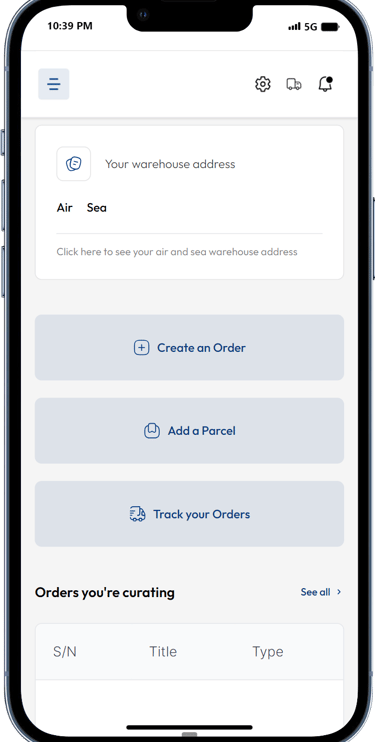Is It Always Cheaper to Buy from China? Here’s What Nigerian and Ghanaian Importers Need to Know
Is buying from China always the most cost-effective choice for Nigerian and Ghanaian importers? Discover the hidden costs, including shipping, customs, and quality control, that could impact your bottom line. Learn how to calculate total landed costs and make smarter sourcing decisions.
Bidemi Oyelola


For many Nigerian and Ghanaian importers, China is the go-to destination for sourcing affordable products. But is it always cheaper to buy from China? While China offers a wide range of low-cost goods, there are various factors to consider that may impact the overall cost of your imports. In this article, we’ll break down the key aspects that influence the true cost of buying from China and help you decide if it’s the right option for your business.
Why China is Popular for Importing
China has built a reputation as the world’s manufacturing hub, and for good reason. Here’s why many importers, including those from Nigeria and Ghana, prefer sourcing from China:
Low Production Costs: China’s massive manufacturing capacity and competitive labor costs mean that goods can be produced at lower prices compared to many other countries.
Variety of Products: Whether you’re looking for electronics, fashion, home goods, or machinery, China offers an extensive range of products.
Customization Options: Many Chinese manufacturers provide flexible customization options, allowing you to modify products to suit your market’s needs.
But while prices might look great at first glance, the true cost of importing from China involves more than just the price tag on the product.
Hidden Costs to Consider When Buying from China
While buying from China often appears cheaper, there are hidden costs that could affect the final price you pay. Let’s explore the key factors that could influence your overall importing expenses:
1. Shipping Costs
Shipping is one of the biggest additional costs when importing from China, especially for Nigerian and Ghanaian businesses. Depending on the weight, volume (CBM), and shipping method (air or sea freight), these costs can add up significantly:
Air Freight: While faster, it’s much more expensive and generally better for small, high-value items.
Sea Freight: More affordable for large shipments, but longer delivery times (typically 4-6 weeks) need to be factored into your planning.
On top of the base shipping fees, there may also be costs for handling, container usage, and potential delays.
2. Customs Duties and Taxes
Every country imposes customs duties and taxes on imported goods, and Nigeria and Ghana are no exception. When your goods arrive, you’ll need to pay:
Import Duties: A percentage of the value of your goods, which varies based on the product category.
Value-Added Tax (VAT): Calculated on the total value of your goods plus shipping and duties.
It’s essential to be aware of these costs to avoid unexpected expenses once your goods arrive.
3. Quality Control and Inspection
When buying from China, especially from unfamiliar suppliers, quality can be a hit or miss. Ensuring the products you receive meet your expectations can require:
Pre-Shipment Inspections: Hiring a third-party inspection service to check the goods before they leave China.
Returns or Replacements: If there are quality issues, you may have to bear the cost of returning goods or requesting replacements, which can eat into your profit margins.
4. Currency Exchange Rates
Fluctuations in exchange rates between your local currency and the Chinese Yuan (RMB) can also affect your final cost. A favorable exchange rate might reduce your costs, while an unfavorable one could make your imports more expensive than anticipated.
5. Minimum Order Quantities (MOQ)
Many Chinese suppliers have Minimum Order Quantities (MOQ), meaning you need to purchase a certain number of units to place an order. While MOQs can help secure lower unit prices, they may require significant upfront investment, especially for smaller businesses.
Is Buying from China Always Cheaper?
Now that we’ve covered the hidden costs, let’s answer the question: is it always cheaper to buy from China? The answer depends on several factors, including:
Product Type: Some products are significantly cheaper to source from China, while others may have competitive prices in other countries.
Shipping and Logistics: For large or heavy items, shipping costs from China could outweigh the savings on the product price.
Supplier Relationships: Building a strong relationship with Chinese suppliers can help you negotiate better prices, but this takes time and effort.
In some cases, buying locally or from nearby countries may offer advantages such as faster delivery, lower shipping costs, and easier communication with suppliers. For instance, importers in Nigeria or Ghana might find regional options for certain products that come with fewer logistical headaches and comparable prices.
How to Ensure You’re Getting the Best Deal
If you decide that sourcing from China is the right move for your business, here are a few tips to ensure you’re getting the best deal:
Compare Multiple Suppliers: Don’t settle for the first quote you receive. Compare prices from multiple Chinese suppliers to ensure you’re getting competitive pricing.
Calculate Total Landed Cost: Factor in all costs—product price, shipping, duties, taxes, and inspection—so you know the true cost of your imports.
Use a Reliable Sourcing Partner: A platform like Proc360 can help you navigate the complexities of importing from China, ensuring you get high-quality products at the best possible price. With Proc360, you can:
Source reliable suppliers.
Manage shipping and logistics.
Ensure quality control.
Handle secure payments and track your goods in real-time.
Conclusion
While China offers an incredible range of products at attractive prices, it’s not always the cheapest option once all factors are considered. Shipping, customs duties, and quality control are just a few of the hidden costs that can impact your bottom line. By carefully calculating your total costs and working with trusted partners like Proc360, you can make informed decisions and maximize your profits.
Remember, whether you’re importing electronics, textiles, or machinery, the key to successful importing lies in understanding the full picture. Make sure to do your homework and weigh all factors before making your decision.


